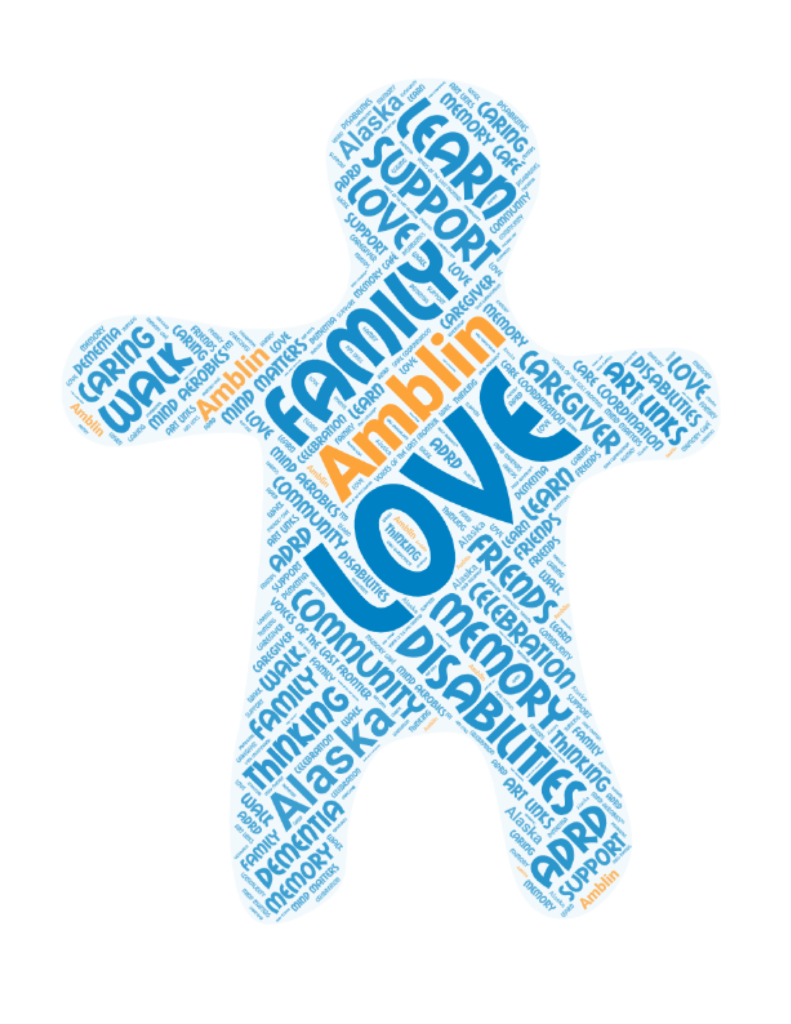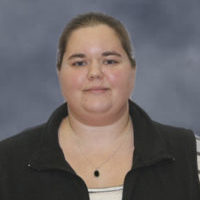Imagine slowly slipping down a dark hole. You grope about trying to stop your fall. Nothing is familiar, not faces nor places; everyone is a stranger. Frustration, fear, anger, even panic overtake you as your brain falls asleep, deeper into the dark unknown. You cannot remember how you got here or how to get out. Then, when all hope seems lost, a light reaches you, awakens you, and with it, hope. And in the light, you find yourself again.
Dementia is that dark tunnel, stealing the memory and spirit of millions each year. But for many, music is the light that opens a pathway to memory, offering moments of clarity and deep emotional connection. Those unable to remember addresses or names of loved ones are able to remember notes and words to songs learned in childhood. For a time, they feel seen and heard, recalling their identity and self-worth.
Connections Through Music
Realizing the transformative power of music to awaken and connect memory—especially the human voice—Alzheimer’s Resource of Alaska’s Executive Director Pamela Kelley and Education Specialist Ann Farris began dreaming of a choir and a concert.
Using the online model provided by Giving Voice Chorus, Ann created a group called Voices of the Last Frontier.
Anchorage’s 100+ Women Who Care awarded $12,000 to sponsor the first-ever choir project. Along with other contributions, funds should cover one or two more concerts.
“All the singers are comprised of three different types of people: those living with dementia; their caregivers, also called care partners; and choral friends—volunteers from the community that come to the weekly rehearsals to not only sing with the group, but to offer support and assistance to the families that are participating,” says Ann, the choir’s co-director and perpetually smiling encourager.
Francy Bennett, development and communications director for ARA, says Alzheimer’s is the sixth-leading cause of death in the U.S., and the only one in the top 10 that has no cure and no scientifically proven medical intervention. More people die of Alzheimer’s each year than breast cancer and prostate cancer combined, she adds.
“Right now, we have 8,000 people in Alaska who are living with Alzheimer’s,” Francy notes.
Researchers say the portion of the brain where music and musical memory lives is the last room where the light turns off, and music is the path that opens the door to that room. Some suggest there is a difference between hearing music and singing, each believed to reach a different side of the brain.
Music excites and awakens our memory, connecting us to times and places, to our deepest emotions the way nothing else can.
Watching faces in the choir come alive is like watching a scene from Ron Howard’s movie “Cocoon.” Expressions change and lives appear transformed, not by a miracle cure in a pool of water, but by the magic of music.
“We have in each of us the music instinct, interconnected with memory,” Ann says, pointing to the PBS program, “The Music Instinct,” on YouTube.
Choir co-director Lonnie Liggitt, who has conducted orchestras around the world, says, “Music is a causing factor in the way people are overcoming their inability to dance, or their inability to actually live,” then quotes the African proverb, “When the music changes, so does the dance.”
Building to the Big Day
After a year of planning and rehearsals that began in late September, plans for the Voices of the Last Frontier’s debut concert mushroomed. As many as 30 singers practiced, with 24 taking the stage on a Friday afternoon in late November.
“A lot of the magic happens at the rehearsals,” Ann says. “The concert is the icing on a fabulous cake.”
Ann and Lonnie join the choir on stage before a crowd of more than 200 in the Wilda Marston Theater at the Z.J. Loussac Library in Anchorage. They are joined by special guests Ernestine Dillard, a soprano and gospel singer from Tulsa, Oklahoma, who is best known for her performance of a medley of “God Bless America” at a 1995 memorial service for victims of the Oklahoma City bombing; Mark Glasionov, a substitute teacher in the Anchorage School District who is enrolled in the master’s education program at University of Alaska; and Melissa Saulnier, a skilled pianist and executive assistant at Alzheimer’s Resource of Alaska.

An hour before the performance, Lonnie speaks as a loving mentor to his choir.
“This is your moment,” the celebrated composer—himself living with early dementia—tells them. “I am delighted and honored to be with you, the choir, because I felt your heart and it lifted me up all these times, and I’ve never seen anything like what you guys have done. Let’s make this the pinnacle of what we’ve done together.”
He asks all to close their eyes while he leads them in calming, focusing, mind-body exercises.
“Feel the energy. Feel the relaxation and the energy. Feel confident,” he whispers. “This is your choir. This is the finest moment for a conductor and choir. I am so close to you. Trust me today. This is good. Thank you.”
Introducing the choir, Pamela shares what is to come.
“When you get right down to it, each and every one of us wants community and connection—a reason to smile, a reason to feel happiness rise in our hearts—and that’s what we are going to do here for the rest of the afternoon,” she says.
The choir of engineers, teachers, artists and a retired Air Force colonel don blue scarves and sing “I Got Rhythm,” “Amazing Grace,” “Over the Rainbow” and other songs.
“From the standpoint of the program, which is the establishment of a choral group, this was very successful,” Pamela says. “Those who participated on stage were benefited from the experience, which is what our program goal is. But those who were in the audience—whether they were family members, community members, folks from the media—they were greatly benefited as well.”
“It’s built its own community of people, and I don’t know that they would have necessarily got together,” Francy adds. “They are there for each other. It opens your eyes and your heart and your mind to what they are living with.”
Stories of Healing
Between songs, participants and caregivers speak about loved ones, both past and present. The two-hour performance includes several emotional moments.
When Ernestine sings “God Bless America,” tears fill many eyes, including those of Sharon Cissna, a former state representative diagnosed with early dementia.

Sharon says the voice and song, “reaches down inside me and connects everything I feel. I was crying out there because we have to work to the end, and we have to believe in ourselves. And our friends are going to be here to keep us alive. It’s knowing every good thing that happens. Hug it, hang on to the beautiful things. And that song was doing exactly that. It was wonderful!”
Singer and care partner Fred Koenig fights back tears as he speaks about his mother-in-law, Gay Hile, a 78-year-old widower originally from Sweet Home, Oregon, who is living with Alzheimer’s.
“When she was first diagnosed, it was hard to see she was changing, as she was mom,” the bespectacled, white-bearded man begins. “Mom never changes, right? She hasn’t in any way changed. She is still my mom. She has amazed us with her happy and positive manner, which she attributes to her faith in the Lord.”
Gay is excited to participate in the choir.
I have dementia and I live in an assisted living home,” she says. “Usually I can’t take part in things. This is just thrilling me. I’ve been practicing since September. It’s wonderful.”
She says her husband has been gone a long time, but can’t remember exactly how long.
“With my dementia, I forget things,” she adds. “I can’t even think of his name. Isn’t that horrible? But I think of him a lot when I am alone.”
Being able to talk with others going through the same thing—hearing their stories and challenges—has helped Gay keep her positive attitude through everything, Fred says.
“The adjustments have been many, but it all works,” he adds. “She has made every decision as easy as possible for us, and for this we thank her and God.”
Facing a Difficult Road
Caregiver Mike Walsh speaks about his bride of 51 years, Maria Elena Walsh, who is afflicted with Alzheimer’s, Parkinson’s and Primary Progressive Aphasia. He says the diseases have made it difficult for his wife, once a professional woman, to get dressed. His 2-year-old great-grandchild can’t understand why everyone but Grandma can speak.
Mike says some friends stopped coming around “because they don’t know what to do. They don’t know what to say to someone who has Alzheimer’s.”
“This by far is the most difficult challenge we will ever face in our lifetime,” Mike says. “How is it that someone who led a very healthy lifestyle—except for Oreo cookies and milk and graham crackers and milk, and chocolate—and with no evidence of family history, winds up with this disease? It just doesn’t seem fair, and it is certainly not the way we had planned on spending our retirement years.”
Maria is supposed to be part of the choir, but bows out at the last minute.
“When you are involved in music, it seems as though your problems are temporarily minimized and—at least for a short period of time—you feel better about life and what it has given you,” Mike says. “The musical group Abba got it right in one of the lines of one of their songs: ‘Thank you for the music, the songs we’re singing, thanks for all the joy they’re bringing. Who can live without it? I ask in all honesty, what would life be without a song or a dance, what are we?’”
Remembering Mother
No story brings more tears than when Lonnie, the celebrated conductor, tells of receiving a call from his sister informing him hospice was at their farm to tend to his mother, who had Alzheimer’s.
He shares what it was like to walk into the farmhouse after not seeing her for a year.

“I looked at that woman,” he says, his voice cracking. “The front of her dress was open, and she had spilled coffee on the front of her body, and it was all red. She didn’t know who I was. It was the greatest shock of my life because this is the woman who taught me how to speak German before I went to school, and she taught me how to speak Latin before I went to school.
“I loved her so much. All she could do was play dominos. That’s what dementia does.
It eats you up. Reaching back into those memories—sometimes when you get old that’s all you can reach are those musical memories like that.
“I want to show you the song she taught me when I was about 4 years old.”
Dressed in a tuxedo, the gray-haired 79-year-old sits down at the piano and begins playing against a silent backdrop, broken only by sniffles from the audience.
Soon, voices from the choir join, first humming, then singing: “And He walks with me and He talks with me and He tells me I am His own …”
Tears stream down faces as some recognize the song, and silent lips begin mouthing the words they grew up singing in church.
Moving Forward
Choir member Lyn Barela’s mother died from Alzheimer’s in 2001, and her father developed severe memory issues late in his life.
“Having seen and heard about some of the things that happened to my parents, it’s scary,” confesses the 65-year-old former speech therapist, who was diagnosed with early dementia. “But there is a healing in acceptance.”
She says she is thankful for people like Ann and the people at ARA.
“They help you realize, ‘So you have Alzheimer’s. You are still a human being. You still have strengths,’” Lyn says.
She says being in an environment where she doesn’t feel stressed, feels accepted and it doesn’t matter if she messes up helps her manage.
“There is an element—when I don’t get in that correct environment—where I just feel the umbrella of anxiety come over me,” Lyn says. “I wouldn’t wish that on anybody.”
During her public talk, she says, “We have camaraderie here. I am an intelligent woman who acknowledges my brain overloads and how it short-circuits. You can help people like me by listening and loving no matter what follows, as Alzheimer’s is a progressive disease. See what I can offer this world as how I am, not as how I should be.”
Lyn laments that one of the downfalls of Alzheimer’s has been her changing ability to read.
“If I really want to read something, I have to take notes,” she says. “Reading is more difficult lately. I have trouble keeping the names connected with the events.

“But music, that’s one thing that hasn’t been altered. That’s one thing I can still do as I always did. I don’t have trouble reading music. I don’t have trouble reading the words. That’s the weird part of Alzheimer’s to me. It touches the areas we don’t think it will and doesn’t touch the other areas we do think it will.”
Lyn says she loves to sing and is “always singing in her car with the radio, always listening to Christian radio. It keeps me faithfully focused. It just keeps my world together.
“Whenever things fall in upon us, there is something to believe in. Singing with this group of those who understand Alzheimer’s validates whatever lies ahead. I am still me.”
Why They Help
Most involved with Voices of the Last Frontier have a connection to dementia-related conditions.
For Ann Farris, it’s the memory of her mother who had Lewy Body Dementia. Ann left her job to help her dad care for her mother so she could die at home.
“Music was a big part of our daily time together,” Ann remembers. “She grew up in the church, so I took her to church as long as I could. When she wasn’t able to get out any longer, we sang together. And so, I do this for her.”
Francy Bennett said her dad is in the early stages of dementia.
“I am really scared because he is driving by himself from Anchorage to Oregon right now,” she says. “He is in his early 70s, and I’m terrified. My mom is in Germany or she would be with him. I was very close with my maternal grandmother. She was dying of breast cancer and my grandfather had some sort of dementia. He was in mid to late stages and had lost his ability to speak. Somebody brought him his harmonica and he played her to heaven.”
George Borderieux, 77, began volunteering with Alzheimer’s Resource of Alaska after Janet, his wife of 31 years, died in April 2019.
“She was very depressed with the Alzheimer’s and couldn’t do her job anymore,” George said. “Her life changed dramatically after she began participating in an art class at ARA. With painting, she was happier, more confident and she had something to look forward to. She hadn’t painted since high school, and I couldn’t believe the first painting she did. It was absolutely amazing! I volunteered to help Ann establish the Voices of the Last Frontier because I believe this chorus can provide similar meaningful, joyful and positive experiences for the participants. Music is a basic need, and this chorus enriches the lives of those with dementia.”
ABOUT THE SERIES: Pioneer Utility Resources, publisher of Ruralite magazine, spotlights Heroes Among Us, sharing the unique stories of volunteers and difference-makers in communities across the Northwest and West. The series receives support from the M.J. Murdock Charitable Trust—a private, nonprofit foundation serving nonprofits across the Pacific Northwest.
 Make a Payment
Make a Payment



